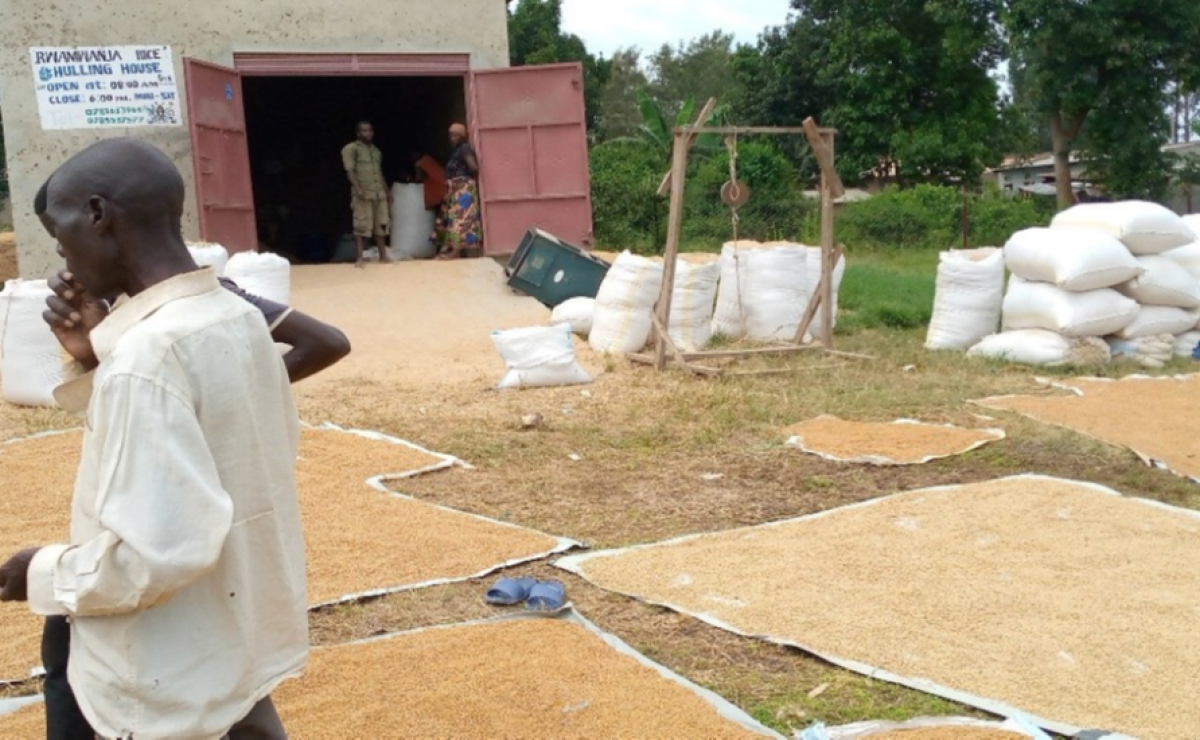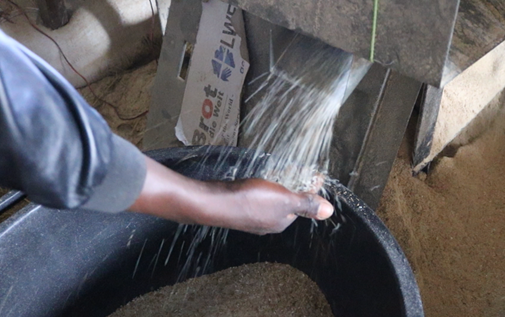Increased rice yields promote food security among households

On a warm Sunday morning in the southwestern district of Kamwenge, a group of farmers gather to celebrate the harvest of 3,000kg of rice from a three-acre piece of land they cultivated. The Mikole Zonal Rice Farmers’ group is even more excited that they don’t have to worry about the market for their produce.
“LWF has supported the rice association and buys the food from the farmers,”
48-year-old Vereriano Mugume, a group member, says. “This saves us from trekking long distances in search of the market,” she adds. With Bread for the World funding, LWF under the Food, Agro-Enterprise and Rural Markets (FARM) project has provided an alternative to households, especially in districts experiencing chronic food insecurity. Before LWF intervention, traditional mixed farming of bananas, maize and beans frustrated the farmers with poor yields. “Meeting my household needs remained a pipe dream,” Mugume recounts. “But now, LWF links us to buyers and exhibitions to get market for our produce,” she attests.
The rice production programme has provided a golden opportunity for vulnerable groups, including women-led households like widows; to secure food and income to meet their family needs as opposed to the unsustainable handouts which cripple their self-led transformation. Another group, Nyabwina Bafakazi Tumanyane, which translates as “Let us, the widows, know ourselves farmers group,” harvested 600kgs of dehulled rice in the first season from the 20kg of seeds they received under the FARM project in 2021.“We have achieved our main target of food security, gained experience and kept some seeds for the next season,”Emily Businge, a group member says.

“We are happy to build on this start-up, and we are hopeful we shall cultivate five other acres of rice in the next season,” the 44-year-old says.The group cultivated only one acre in the previous season.
Businge and 32 other widows had struggled for seven years to improve their livelihood in vain. The widows had lost hope of improving their household income and food security. “We hardly knew what to do,” she admits.
“When my husband died, I found it hard to raise food, school fees and other household needs,” narrates the mother of four, adding that her husband was the breadwinner.LWF trains the participants in practical and best rice-growing practices, including land preparation, seed selection, planting methods, soil conservation, weeding, and harvesting.Towards harvesting time, the farmer groups are equipped with tarpaulins for drying rice and trained in other post-harvest handling practices.Enhancing agricultural production and productivity intervention supports farmers to increase yields, decrease production costs and post-harvest losses, and ensure they utilise quality agro-inputs, technical advice, savings and credit for enhanced household food and income security.
-END-

